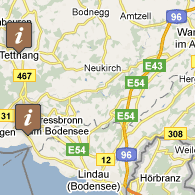Checklist for Gaining Local Web Authority

Trying to find your place on the World Wide Web can be intimidating - particularly for businesses that lack dedicated digital marketing teams charged with continually working to improve a site's visibility. With the pace of change reaching feverish levels, gaining any level of authority can seem nearly impossible, especially for locally focused businesses.
Luckily, with proper planning these business owners can employ digital visibility tactics to immediately bump up their presence in the local results and start competing more forcefully. Here's a checklist of strategies to use to begin obtaining more geo-focused visibility and visits:
Get Listed: Similarly to how local businesses used traditional yellow pages in the past, listing a business on the Web's most important directory websites can dramatically increase visibility - a list of the most popular local Web directories can be found at https://wsm.co/uKa3fD. Not only do consumers use sites like Foursquare and Yelp to discover nearby businesses with some regularity, but visitors are also likely to leave reviews (an important variable in gaining trust and authority) through these platforms. Creating a basic profile on these sites is typically free and does not require much time to set up. To locate the best possible sources of citations, consider using WhiteSpark.ca's Local Citation Finder (https://wsm.co/PjGoEM), which displays potential link sources for local businesses and provides a platform to keep track of those previously earned.
Socialize with the Locals: Facebook now hosts more than 1 billion active users each month. To capitalize on the numerous - and potentially valuable - interactions that occur there on a daily basis (and the more subtle visibility opportunities that are routinely presented), businesses must maintain a social presence on Facebook as well as other influential social networks including Twitter, LinkedIn and Google+. Most, if not all, social networks are regularly crawled by search engines and profiles do (regularly) appear within result pages. This is definitely the case with Google+; in fact, conduct a Google search for a business and you will likely see its company's Google+ page prominently featured in the top right-hand corner of the SERPs. Aside from a better search result experience, there is also the benefit of local "word-of-mouth" marketing that is created by customers. For example, Facebook's check-in feature allows customers to broadcast the places they visit within their status updates, which means that a link to that business's page is also visible to many more local consumers. Remember: more citations, more visibility, more activity.
Advertise Locally: There is no better way to gain local Web authority than through advertising, and what better place for your advertisements to show up than in the Google search results, right? While there are many places where businesses can feature their local advertisements. Consider starting with Google AdWords Express, a platform that allows businesses to advertise solely on Google Search and Google Maps. Google is far from the only platform where business owners can promote their local business, however. In fact, many of the 'Net's top directory sites and social networks, such as the aforementioned Yelp and Facebook, also allow businesses to set up advertisements that can target a very specific and local demographic. Keywords obviously play an important role; so consider using tools such as 5MinuteSite. com's Local PPC Adwords and Keyword List Creator (https://wsm.co/PjHbpe), which transforms keywords into locally focused terms based on zip code.
Start Networking: Link building should always be a top priority for businesses on the Web, regardless of how much visibility it already has. However, it is particularly beneficial for small businesses that are trying to gain a better position in the local SERPs. While there are countless ways that Web workers can collect links (visit https://wsm.co/LxQz2B for a Big List of Link Building Strategies), local businesses should also attempt to put a local spin on its citations whenever possible. For example, submitting company news to sites like AOL's Patch or smaller local media outlets can help a company quickly obtain those critical, local-themed links. Another way to put a local twist on a common link building strategy is by featuring local guest bloggers. For example, a pet store owner could ask a local veterinarian to write an article about preparing pets for the cold weather. Once the article is completed, not only will the pet store feature it on their company blog, but the veterinarian will also most likely share the link on his or her website, and maybe even share the article to their local audience via email and social networks.











